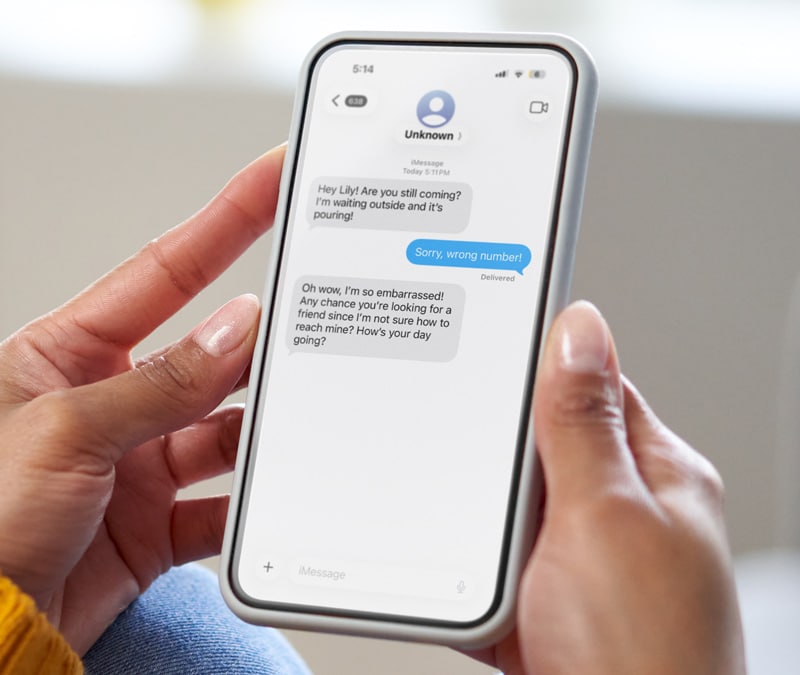How AI advancements are helping catch deepfakes and scams
In a world where digital threats are constantly evolving, Norton is stepping up with cutting-edge solutions to help keep you safer. Teaming up with Qualcomm, Norton is showcasing how Neural Processing Units (NPUs) with AI-powered scam detection can serve as a digital bodyguard to help spot scams before they trick you.

With cybercriminals adopting AI to create hyper-personalized and convincing attacks, scams can be harder to spot. Many of the threats Norton detects are scams, ranging from phishing emails to deepfakes designed to deceive even the most tech savvy people. Recognizing this trend, Norton teamed up with Qualcomm to provide a first look at an innovative approach at the Consumer Electronics Show (CES). Together, they’ve demonstrated how harnessing the power of NPUs can help people stay one step ahead of cybercriminals.
What Is an NPU?
An NPU, or Neural Processing Unit, is like a super-smart computer brain designed to handle complex AI tasks quickly and efficiently. Imagine a regular computer processor as someone solving math problems with a pencil and paper. Now picture the NPU as a supercomputer solving thousands of problems at once. NPUs are specially built to process the large amounts of data that AI systems use to learn and make decisions, rendering them a perfect fit for scam detection.
In collaboration with Qualcomm, Norton gave a sneak preview of how deepfake and scam detection technology can be integrated directly into devices powered by NPUs to help keep people more informed and protected in their digital lives. This ensures faster, more accurate detection of deepfakes and scams while keeping your data safer.
How Norton’s AI Scam Protection Works
Norton AI-powered detection works seamlessly with Qualcomm’s advanced NPU technology to protect people from emerging threats. Here’s how it works:
- Identifying scam-related deepfakes with audio stream analysis: The AI scans the audio in videos to determine if the audio is generated by AI and analyzes the content to figure out if the intention of the message is to scam you. If a suspicious intent is detected, you are notified so that you can avoid the scam.
- Website monitoring: The system helps protect against brand impersonation scams by comparing the features of legitimate brand websites with suspicious sites to detect if a website is trying to trick you into providing your personal or financial information with a phishing attack.
- Fast detection: Using the NPU’s speed and efficiency, the system flags potential threats in seconds, allowing people to act before they become a victim.
- Maintaining online privacy: While other solutions have to transmit data off of your device in order to process it on their servers, Norton AI-powered detection works with the NPU to protect you without your content ever leaving your device.
Devices with NPUs benefit from lightning-fast threat detection, but models by Norton are also designed to run on CPUs, ensuring broad protection across different devices.
FAQs
What kinds of scams can this technology detect?
At CES, Norton showcased the detection of common scams such as brand impersonation, passive income schemes, and fake cryptocurrency giveaways. As threats evolve, so will detection capabilities by Norton.
How does this new technology from Norton identify scam content?
At CES, Norton analyzed audio streams to detect scam-related content or speech and determine if the audio was AI-generated. For websites, the AI flagged discrepancies between known authentic sites and potentially harmful imposters. These new features enhance robust scam detection technology from Norton to defend against today’s threats.
The Future of AI
As AI continues to evolve, so do the opportunities for innovation and protection. This collaboration between Norton and Qualcomm is just the beginning of a new era in cybersecurity, where AI serves as a trusted ally against ever-changing cyber threats. Follow along the latest updates on how Norton is paving the way for a safer digital world.
Editorial note: Our articles provide educational information for you. Our offerings may not cover or protect against every type of crime, fraud, or threat we write about. Our goal is to increase awareness about Cyber Safety. Please review complete Terms during enrollment or setup. Remember that no one can prevent all identity theft or cybercrime, and that LifeLock does not monitor all transactions at all businesses. The Norton and LifeLock brands are part of Gen Digital Inc.





Want more?
Follow us for all the latest news, tips, and updates.